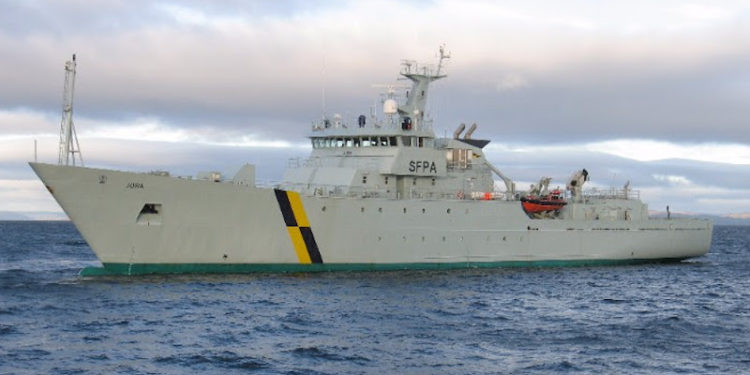The European Court of Auditors (ECA) today presented its ‘EU fisheries controls: more efforts needed’ special report to the European Parliament. Europêche, which represents industry bodies across the EU, does not consider that the report reflects significant progress made on fisheries control and monitoring over the last years nor the actual situation in the whole European Union.
The report examined the effectiveness of the current EU fisheries Control Regulation by auditing the control system implemented in four key Member States (Spain, France, Italy and the UK (Scotland)). The ECA concluded that the EU does not yet have a sufficiently effective system of fisheries controls to support the Common Fisheries Policy (CFP).
According to Europêche, the EU adopted in 2010 an ambitious EU Regulation establishing an effective system for control, inspection and enforcement. The European Commission (EC) has acknowledged in a recent evaluation report that it is indisputable that the Control Regulation contributed to improve the fisheries control system and to step up compliance with the CFP. Nevertheless, certain flaws have been identified by both the ECA and the EC, mainly due to shortcomings in the implementation by Member States and to deficiencies in the application of certain provisions, such as data exchange, sanctions, point system or traceability.
Europêche argues that member states are in broad terms implementing the core provisions of the Control Regulation preventing overfishing and poor compliance in our waters. But as with any new legal framework, time is needed to adapt to the new complex system and technologies, which may delay the application of certain provisions.
‘The EU Control Regulation has prompted significant changes and considerable improvements in fisheries control management. The fishermen we represent are not only widely complying with the new legislative framework, but investing in modernised monitoring systems,’ stated Europêche President Javier Garat.
‘For instance, the utilisation of electronic and satellite monitoring systems are being expanded to other parts of the world thanks to the exchange of good practices undertaken by our operators. These efforts, coupled with the EU and MS’ support, allow us to proudly say that the EU fishing fleet is the best monitored and controlled in the world.’
‘EU Governments are also taking this issue seriously prosecuting operators involved in illegal, unreported and unregulated (IUU) fishing around the world. Even NGOs have publicly recognised the efforts made by Spain (country audited in ECA’s report) to deter illegal fishing practices worldwide. It is frustrating that these positive trends are not reflected in the special report,’ he said.
In addition, only four countries were fully audited in the ECA report. Europêche criticises the generalised conclusions and assumptions made for the whole EU based on the factual and legal situation of only four member states.
The ECA identified an alleged lack of transparency on the criteria used to allocate fishing quota within producer organisations (POs). While considering that this issue does not relate to the implementation of the Control Regulation and reminding that the membership to a PO is completely voluntary, the production and marketing plans currently developed offer a unique opportunity to increase transparency on the allocation criteria. Europêche has welcomed the concluding positive remark from the ECA’s report stating that social, economic and environmental criteria are taken into account, in conformity with the CFP objectives.
Europêche shares ECA’s opinion on the need to improve the monitoring of fisheries management measures, particularly for vessels under 15 metres. However, in order to facilitate the installation of tracking devices in small-scale fishing vessels, these should be cost-effective systems open to EU financial support.
‘As far as infringements are concerned, we favour ECA’s recommendation to establish a European register of infringements and sanctions. This would certainly improve transparency and help create a level-playing field in the application of the point system.’ Javier Garat said.









